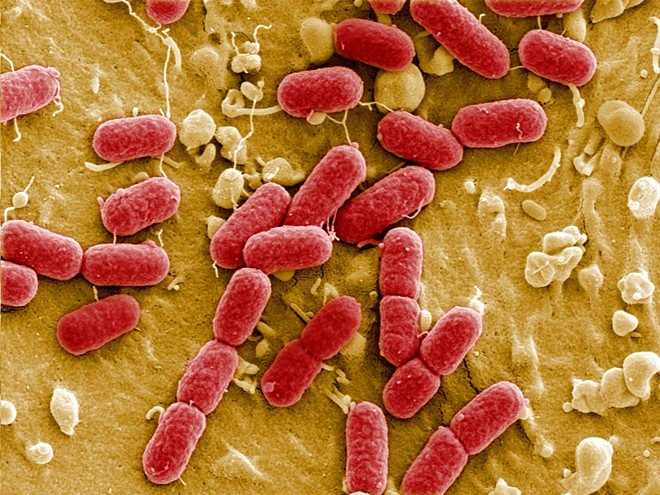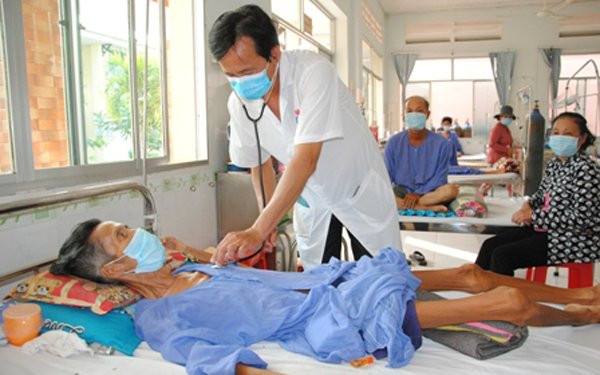Vietnam has super bacteria resistant to all antibiotics
Antibiotic resistance in Vietnam is on the rise as some super bacteria appear that are resistant to all drugs.
At the 2017 national scientific conference on emergency resuscitation and anti-poisoning last week in Hanoi, Professor Nguyen Gia Binh, President of the Emergency Resuscitation and Anti-Poisoning Association, expressed concern about antibiotic resistance in our country.
According to him, most medical facilities are facing the rapid spread of bacteria resistant to many groups of antibiotics. The situation of drug resistance in the southern provinces is more serious.
In intensive care units, this problem is even more difficult, because this is where the most seriously ill patients are concentrated, through many treatment departments.
 |
| With the current rapid rate of antibiotic resistance, in the next few decades many common diseases will be incurable. |
Associate Professor, Dr. Doan Mai Phuong, Head of the Department of Microbiology, Bach Mai Hospital, said that in the southern provinces, the rate of Ecoli (intestinal bacteria) resistant to antibiotics is up to 74.6%; the resistance rate of bacteria causing K. pneumoniae infections is up to nearly 60%; A. baumannii bacteria (causing hospital infections) has a resistance rate to most antibiotics at over 90%...
With the carbapenem antibiotic group, the strongest antibiotic group today, the rate is up to 50%, especially gram-negative bacteria carrying drug resistance genes such as Beta lactamase.
Associate Professor, Dr. Luong Ngoc Khue, Director of the Department of Medical Examination and Treatment Management, Ministry of Health, said that while many developed countries are still using effective first-generation antibiotics, Vietnam has had to use third and fourth-generation antibiotics.
More worryingly, in our country, there have appeared some types of super bacteria that are resistant to all types of antibiotics. The most common are the group of gram-negative intestinal bacteria.
Antibiotic use doubled
The World Health Organization ranks Vietnam among the countries with the highest rates of antibiotic resistance in the world.
Since 2009, the amount of antibiotics sold to the public in Vietnam has doubled.
The reason is that up to 88% of antibiotics in urban areas are sold without prescription, in rural areas the rate is up to 91%.
 |
Patients with multidrug-resistant tuberculosis are treated at Dong Thap Lung Hospital |
Doctors use antibiotics inappropriately. According to a survey by Cho Ray Hospital, about 50% of antibiotics are prescribed by doctors inappropriately; 32% of doctors prescribe antibiotics for patients without bacterial infections; 33% of doctors use antibiotics for prolonged and unnecessary periods...
Meanwhile, the speed of discovering new antibiotics in the world cannot keep up with the increasing rate of antibiotic-resistant bacteria.
In more than 100 years (from 1983 to 1987), the US Food and Drug Administration has only approved the use of 18 antibiotics. Since 2008, no new antibiotics have been discovered.
With this situation, WHO estimates that by 2050, every 3 seconds, one person will die from drug-resistant superbugs, equivalent to about 10 million people per year. At that time, common diseases such as coughs or just a cut can also cause death.
To limit this situation, the Minister of Health has decided to establish a technical group on drug resistance surveillance for the period 2017-2020.
The group will be responsible for coordinating, evaluating, reporting on surveillance of antibiotic resistance and providing solutions to prevent the increase in antibiotic resistance of common pathogens.
According to Vietnamnet
| RELATED NEWS |
|---|

